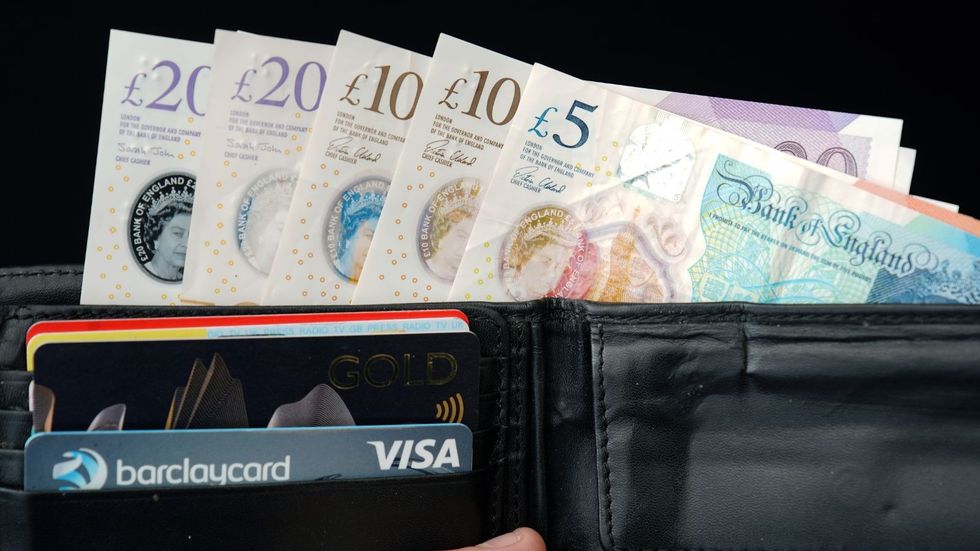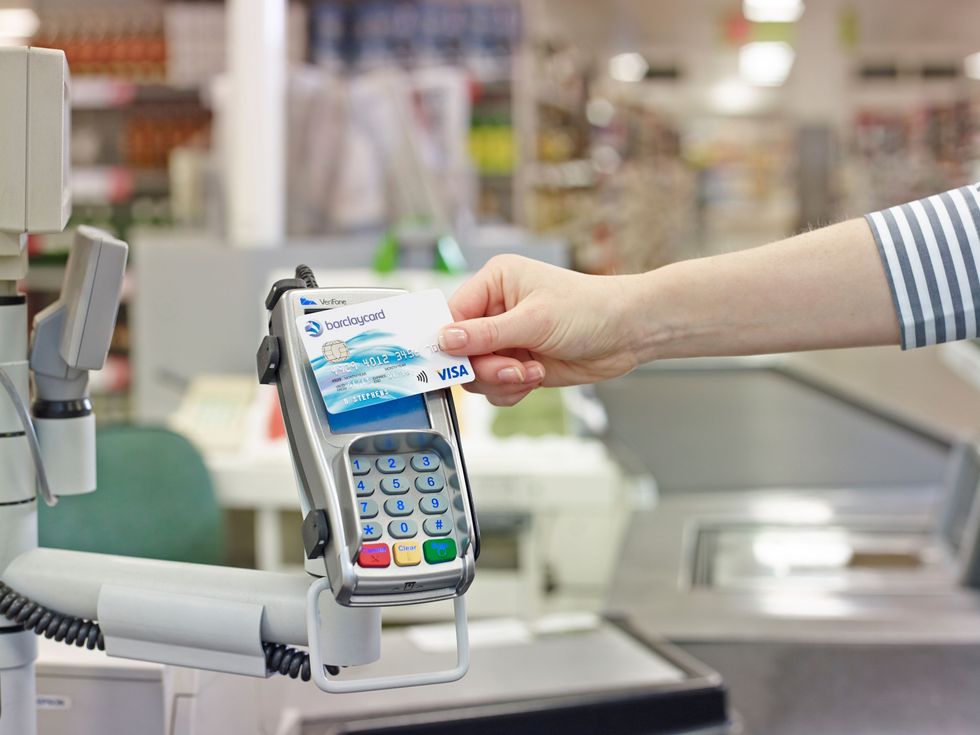Cashless society looms as millions of Britons ditch coins and notes for digital wallets

Consumers are urged to keep cash reserves and diversify payment options to avoid being caught out by disruption
Don't Miss
Most Read
The UK is moving closer to a cashless society, with traditional wallets and purses increasingly left behind.
Shoppers are turning in record numbers to digital wallets, a shift that experts warn could have serious consequences if payment systems fail.
Less than half of people carry a physical wallet day-to-day, according to new figures from cash access and ATM network Link.
Just 48 per cent of those surveyed considered carrying a wallet an essential part of their routine, despite 82 per cent saying they still own one.
The shift reflects the increasing adoption of digital payment methods, with consumers increasingly comfortable leaving home armed only with smartphones and smartwatches for transactions.
The report, titled Tapping into Trouble? The UK’s Growing Digital Payment Dependency, found that people aged 45 and over prefer physical debit cards, while those aged 18 to 44 are more likely to favour digital wallets.
One in nine UK adults, or 11 per cent, now leave home with only a digital wallet, rising to 29 per cent of people aged 35 to 44. Yet despite this trend, more than half of respondents – 51 per cent – said they had still used cash in the past week.
Link also raised concerns that technology failures have left consumers exposed across payments, banking and other services.

Less than half of people carry a physical wallet day-to-day
|PA
More than six in ten people (61 per cent) said they had experienced payment failures. Some abandoned their purchases, while others relied on someone else to pay on their behalf.
The report suggested many consumers may be leaving themselves vulnerable by relying on limited payment options. Among digital wallet users, 40 per cent said they had only one card set up, and 60 per cent said they carried no physical wallet at all.
Seven per cent of people reported carrying no cash whatsoever, while 23 per cent said they had none at home.
Adrian Roberts, deputy chief executive at Link, said: "Our research shows that growing reliance on digital comes with growing risk. Recent experiences from around the globe have demonstrated that digital payment systems can fail and two-thirds of people have faced some form of disruption already."

Seven per cent of people reported carrying no cash whatsoever
| GETTYMr Roberts stressed the need for improved cash acceptance infrastructure, noting that retailers require easier methods to continue accepting physical currency.
He highlighted the Bank of England's National Payments Vision as a positive development towards strengthening digital payment resilience.
Link has issued practical guidance for consumers to safeguard against payment disruptions.
Their recommendations include maintaining emergency cash reserves, diversifying payment networks, and utilising multiple digital wallet platforms.
 Many retailers have all launched card-only retail outlets | PA
Many retailers have all launched card-only retail outlets | PALink offered several tips for households to protect themselves if digital payments fail:
- Consider maintaining a cash reserve.
- Have a diversified range of payment networks to choose from.
- Consider using multiple digital wallets.
- Do the basics – sign your cards and know your PIN.
- Understand your contactless payment limits.
- Consider whether having an alternative current account and banking app could be helpful.
- Make sure you can access a portable charger, if needed.
The findings highlight both the growing dominance of digital payments and the risks of being left stranded when technology goes wrong.
More From GB News









